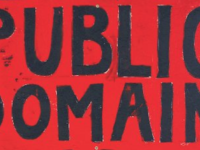Canadian Heritage Minister Steven Guilbeault yesterday told the House of Commons Heritage Committee that his department would reduce the amount it allocates to digital advertising, arguing that too much goes to online platforms and that “we need to change this.” The decision to politicize where the government spends its ad dollars is perhaps unsurprising given Guilbeault’s penchant for battling with the tech companies, dating back to his claims that linking to news articles without payment is “immoral.” Leaving aside the question of whether taxpayer funded advertising campaigns should prioritize effectiveness and value for money (personally, I’d prefer that the government emphasize the effectiveness of ad campaigns on issues like COVID-19 vaccination and safe social distancing practices over political posturing even if that means advertising on digital platforms), the reality of Guilbeault’s own Facebook practices do not match up with his rhetoric.
Post Tagged with: "copyright"
The Law Bytes Podcast, Episode 78: Jennifer Jenkins on What Copyright Term Extension Could Mean for Canada
For years, Canada resisted extending the term of copyright beyond the international standard of life of the author plus 50 years. That appears to have come to an end with the USMCA, which requires an extension. The Canadian government has just launched a public consultation on the issue, identifying several “accompanying measures” to address concerns about the negative impact of term extension. For the many Canadians that participated in the recent copyright review process, the consultation document comes as huge disappointment as it seemingly rejects – with little legal basis – the review’s recommendation on establishing a registration requirement for the additional 20 years that would benefit both creators and the public.
The consultation is currently open until March 12th. Duke University’s Jennifer Jenkins, who is is a Clinical Professor of Law teaching intellectual property and Director of Duke’s Center for the Study of the Public Domain, joins the Law Bytes podcast this week to help sort through the likely implications of copyright term extension for Canada.
The Copyright Bill That Does Nothing: Senate Bill Proposes Copyright Reform to Support Media Organizations
The Toronto Star reports that Senator Claude Carignan, a Conservative Senator, plans to introduce a new bill that would amend the Copyright Act to create a new compensation scheme for media organizations by establishing a new collective rights system for the use of news articles on digital platforms. I’ve written extensively about why calls for mandated compensation for linking to news articles on social media sites is an ill-advised policy and how the media organizations themselves are responsible for much of the posting. Heidi Tworek has written about the risks of using IP to address the issue, which she discussed on my Law Bytes podcast (Jeff Elgie of Village Media also appeared on a recent podcast episode to criticize the lobbying campaign for new payments).
Afraid to Lead: Canadian Government Launches Timid Consultation on Implementing Copyright Term Extension
After years of rejecting copyright term extension beyond the international law standard of life of the author plus 50 years, the Canadian government caved to pressure from the United States by agreeing to the equivalent of life of the author plus 70 years in the U.S.-Canada-Mexico Trade Agreement (USMCA). As part of that agreement, Canada obtained a 30 month transition period that would allow for consultation on how to implement the copyright term obligation. That consultation was launched late yesterday, with the two departments responsible for copyright – ISED and Canadian Heritage – launching the consultation and a consultation document. The consultation period is very short with responses due by March 12, 2021. The department says that all responses will be made available online once the consultation is concluded.
Canadian News Media Lobby Group Calls for Creation of Government Digital Media Regulatory Agency
News Media Canada (NMC), the lobby group representing the major newspaper publishers in Canada, released a new report yesterday calling for the creation of a government digital media regulatory agency that would have the power to establish mandated payments for linking to news articles, establish what content is prioritized on social media sites, require companies to disclose algorithmic changes, hand over moderation control of content on news stories to the publishers, and potentially issue fines in the hundreds of millions of dollars. Canadian Heritage Minister Steven Guilbeault has made “get money from web giants” his top legislative priority and has expressed support for mandated licensing for links.
The report, which inaccurately describes the ill-advised Australian approach to licensing links to news articles, is notable for many of the things it does not say. For example, one could easily read the 41 page report and not realize that companies such as Google and Facebook do not publish full versions of news articles without a licence. Indeed, rather than “taking” content, links to news articles are posted by their users, which then send interested readers back to the original source. In fact, the media companies themselves are typically responsible for posting their own articles and granting a licence for their use.











